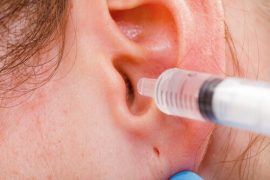How To Clean Ears At Home Naturally?
How To Clean Ears At Home Naturally?. Ears are organs that we sometimes ignore when it comes to hygiene. However, it is important to sometimes thoroughly clean your ears.
Earwax can cause blockages in various ways that can cause discomfort, such as strange noises , and thus affect your optimal hearing. And that is why you have to clean your ears to remove the excess earwax that has accumulated.
However, when your ears are completely healthy, they will clean themselves naturally .
The following symptoms indicate that ear wax has accumulated in your ears:
- Pain or impaired hearing
- Squeaking noise or abnormal sounds in your ear
- Itching and smelly excretion
7 natural home remedies to clean ears at home
The most worrying thing is that not everyone knows how to remove earwax and that the wrong tools are often used to do this. As a result, serious infections and other problems are developed that affect the health of the ears.
That is why it is good to know some alternative remedies to remove earwax without complications. Below we provide seven natural remedies that can make this task easier.
1. Mustard oil to remove ear wax

How to clean ears naturally
Mustard oil is a natural product that helps remove excess ear wax. Its antimicrobial properties form a barrier against germs and they also reduce the risk of infection.
How should you use it?
- Heat a few drops of oil in a bain-marie and drop it in your ear when it is warm.
- Leave this on for a few minutes and then turn your head in all directions to remove all clutter.
- Repeat this process on both sides and finally wipe the outside of your ear with a cotton pad.
2. Apple cider vinegar ear wax
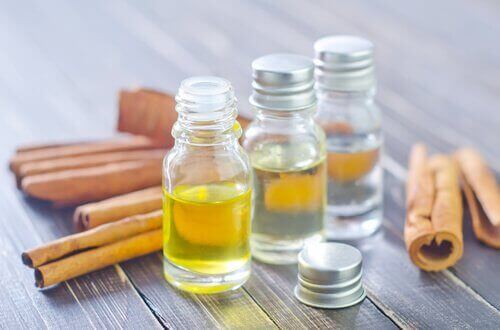
Rinsing your ears with a little apple cider vinegar also reduces the amount of ear wax and restores the natural pH value in the ear.
Applying this product will reduce the presence of microorganisms, limit inflammation and also help prevent the development of infections.
Ingredients
- 1 tablespoon apple vinegar (10 ml)
- ½ cup of water (125 ml)
How should you use it
- Dilute a tablespoon of apple cider vinegar in half a cup of water and then pour this mixture into a pipette to be able to apply the product.
- Drop 5 drops into each ear and let them sit there for several minutes.
- Then repeat this at least once a week.
3. Paraffin oil
This oil will reduce the production of earwax and also soften the accumulated earwax.
How should you use it?
- Heat the paraffin oil a little and then put three to four drops in the ear with a pipette.
- Tilt your head for a few minutes before draining the oil.
4. Almond oil
Almond oil has many useful uses, including cleaning your ears.
How do you use it?
- Put a little almond oil in a pipette, put three or four drops in your affected ear and then keep your head in a horizontal position for 10 minutes.
- After these ten minutes, drain the moisture from your ear and wipe the outside of your ear with a soft cloth.
5. Baking soda
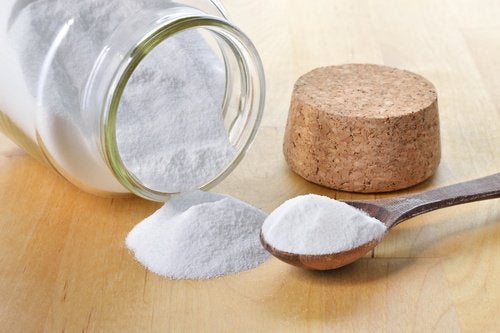
The unique properties of baking soda can help you clean your ears, soften earwax and protect you against microorganisms.
Ingredients
- 1 tablespoon of baking soda (5 grams)
- ½ cup of water (125 ml)
How should you use it?
- Add a tablespoon of baking soda to half a cup of warm water, shake well and put a few drops in your ear.
- Leave it there for a few minutes and remove the excess with a dry, soft cloth.
6. Garlic
The antibiotic properties of garlic simplify the cleaning of your ear canal and inhibit the growth of bacteria and fungi.
How do you use it?
- Cut a few cloves of garlic into pieces and then heat them in a frying pan with a little olive oil.
- Wait until it has cooled, remove the garlic pieces from the oil and apply the oil to your ear with a cotton pad.
- Leave on for a few minutes and then rinse your ear with warm water.
- Clean your ear with a soft cloth and repeat the procedure with the other ear.
7. Coconut Oil to clean ears
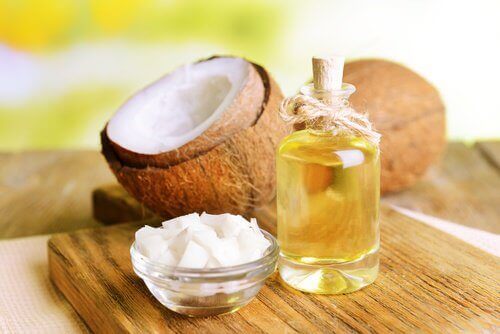
In addition to the antibacterial properties, the fatty acids in coconut oil ensure that this is one of the best alternatives for cleaning and protecting your ears.
How do you use it?
- Heat a few drops of coconut oil and drop it into your ear using a pipette.
- Wait about five minutes, drain the excess oil and wipe the outside of your ear with a soft cloth.
- Repeat this every month.
As you have seen, there are various options for removing excess earwax without damaging the ear canal. Not sure whether you should get started yourself? Then make an appointment with an ENT doctor . Often he or she will work the ear wax outward with the help of an ear funnel and a pair of tongs, hook, lisje or piston.
Do not use cotton buds and other aids that can damage your hearing in the worst case.
Home remedies to clean your ears
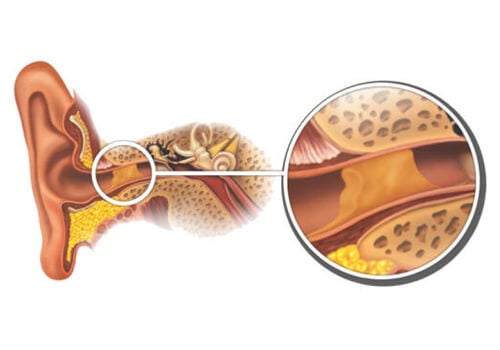
Fortunately, there are many natural, home-made methods to effectively remove excess ear wax that clogs your ears. The most common home remedies are :
Massage to loosen earwax
By massaging you can loosen the earwax that blocks your ear canal. Massage the area behind your ear and pull your ear in different directions, always opening and closing your mouth.
Hydrogen peroxide
Hydrogen peroxide , or oxygen water, can be used to treat ear pain as well as to remove excess ear wax that has accumulated and blocks your ear canal . Below we explain how this can be applied:
Mix half a cup of hydrogen peroxide with half a cup of warm water and fill a syringe with this solution. Lay on your side and fill your ear with it. Leave it on for three to five minutes. Then drain the liquid and then clean your ears by repeating this process, but only with warm water.
Instead of oxygen water you can also choose to use baby oil or mineral water .
Olive oil
This remedy is identical to the previous one, but you use warm olive oil . Leave on for 15 minutes and repeat the process three times a day for three to four days.
Bottle of warm water
This is an easy but very effective home remedy. All you have to do is take a bottle and fill it with warm water . Place the bottle of warm water directly on the affected ear for 15 to 30 minutes. This will soften the earwax and make it easier to clean.
Rinse out
In the store you can easily find tubes to wash out your ears . Do this with water at body temperature. Make sure you thoroughly dry each ear after treatment.
Clean your ear with a camomile infusion
For this treatment you mix two tablespoons of chamomile flowers in a cup of water. Make it an infusion and keep it warm. Make sure you sieve the infusion well so that no residues of the flowers remain.
Before using the infusion, first drop three drops of olive oil into your ears. Leave this on for five minutes. Then clean your ear with the infusion that you have just prepared.
If the problems persist, consult your doctor. He or she can clean your ears in a more thorough way.
Precautions for cleaning your ears
- If you feel something strange or disturbing in your ears, never clean them by inserting a foreign object . Cotton buds are not recommended. They could make the problem worse by pushing the earwax deeper into your ear.
- If you have a perforated eardrum, never clean your ears with these home remedies! This could cause serious damage to your ear .
- Never clean your ears with pressurized liquid. You could damage or perforate your eardrum. Also remember that you don’t have to clean your ears too often, because that can cause infections.
- Do not use any of the above remedies in children under 12 years old. This can cause serious problems because their ears are much more delicate. If you suspect that a blockage is occurring, consult a specialist.
Remember…
You must know well that earwax is necessary. After all, it protects your ear against dust, microorganisms and other foreign substances that could penetrate your ear canal to damage it.
That is why washing your ears is only recommended when it is really necessary (if there really was a blockage due to an accumulation of earwax).
If you get very frequent clogging, consult an ear specialist . He or she will be able to determine which treatment is best to solve your problem.
Sources:
- Dean L. (2006). Don’t put anything smaller than your elbow in your ear. Coffee break: Tutorials for NCBI tools.
ncbi.nlm.nih.gov/books/NBK2333/ - Got an ear full? Here’s some advice. (2018).
health.harvard.edu/staying-healthy/got-an-ear-full - Schmitt BD. (2014). Earwax problems.
summitmedicalgroup.com/library/pediatric_health/hhg_earwax/

